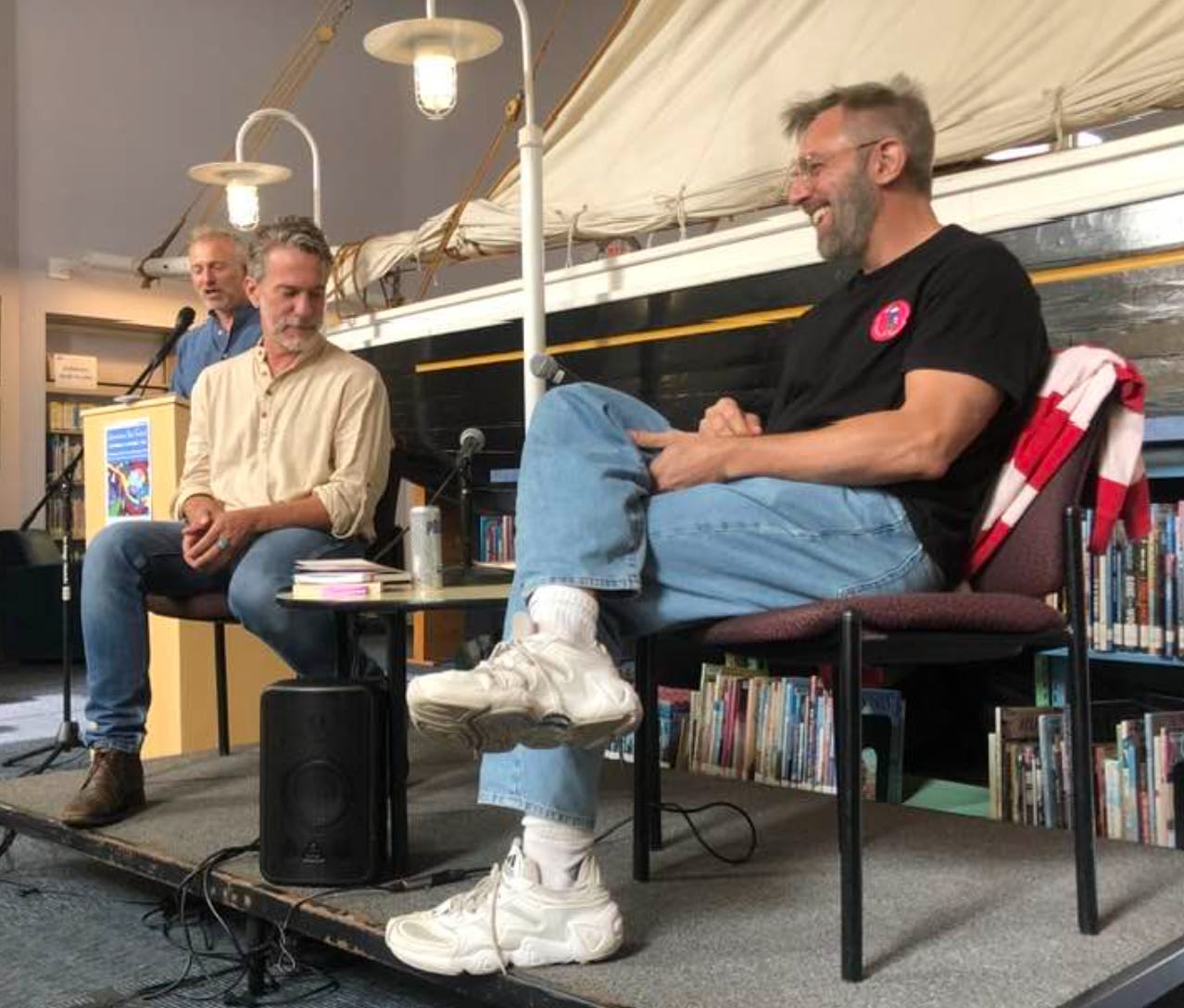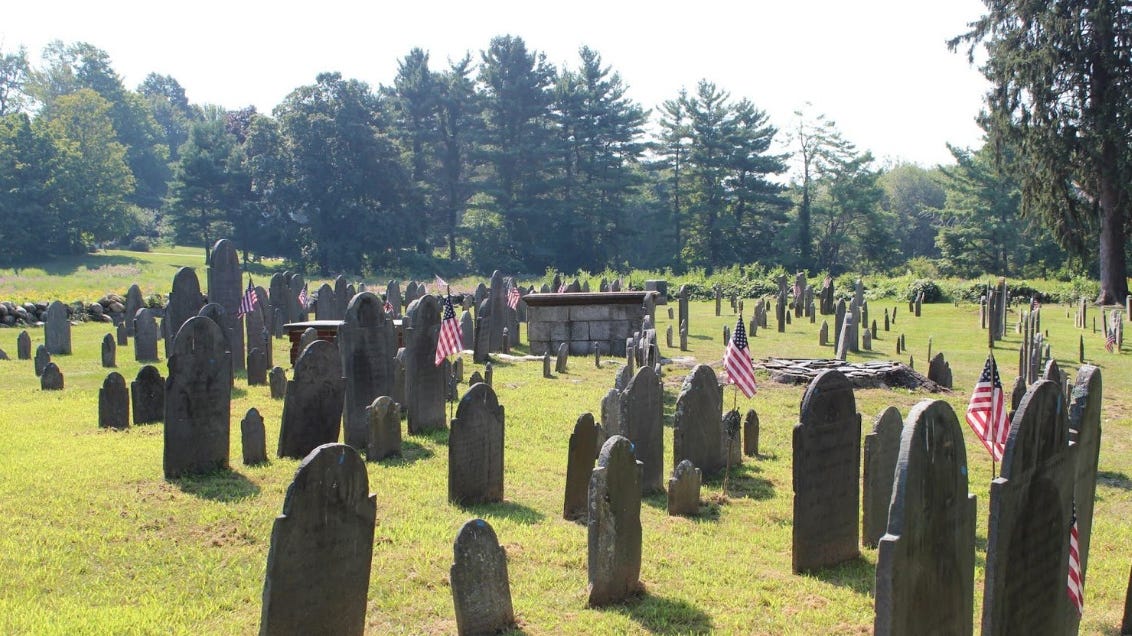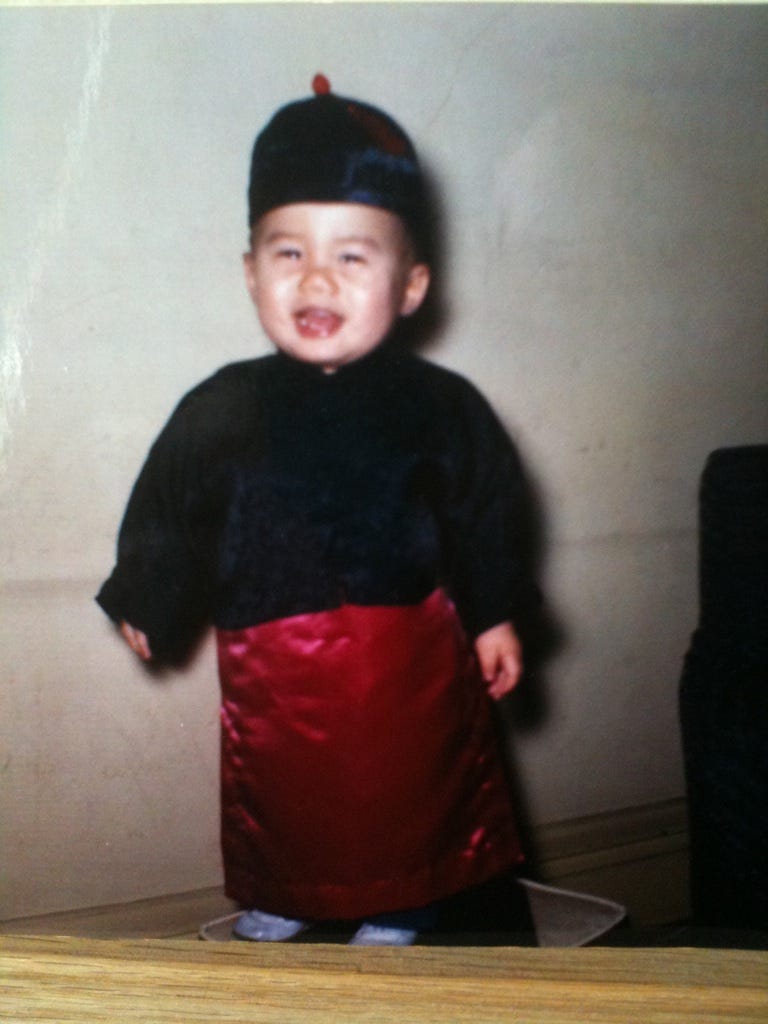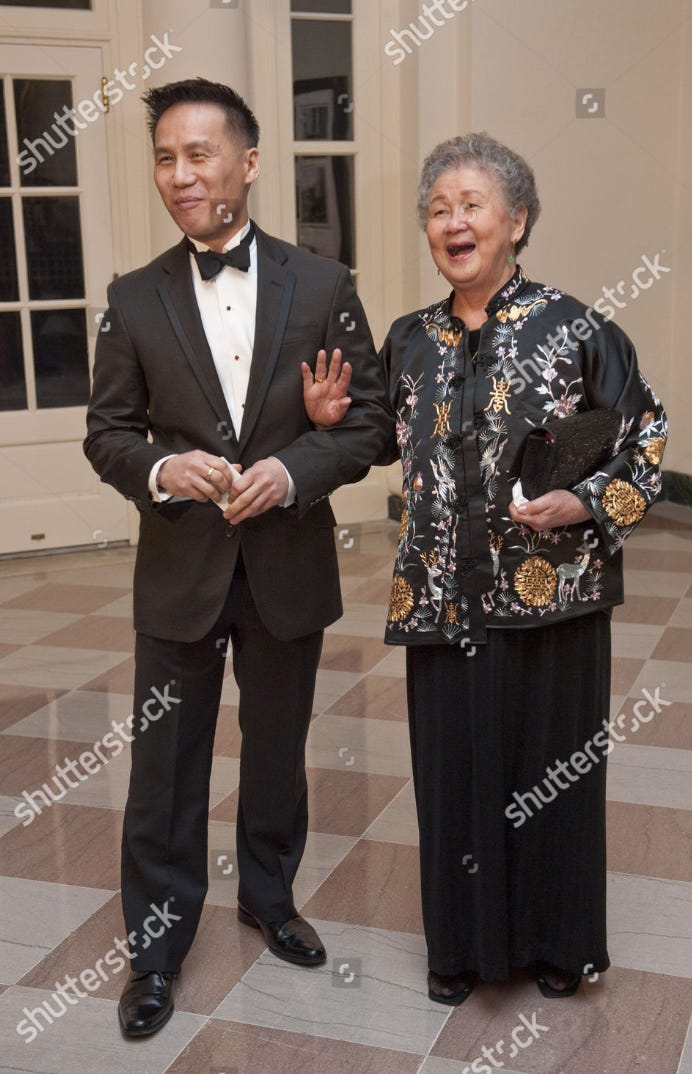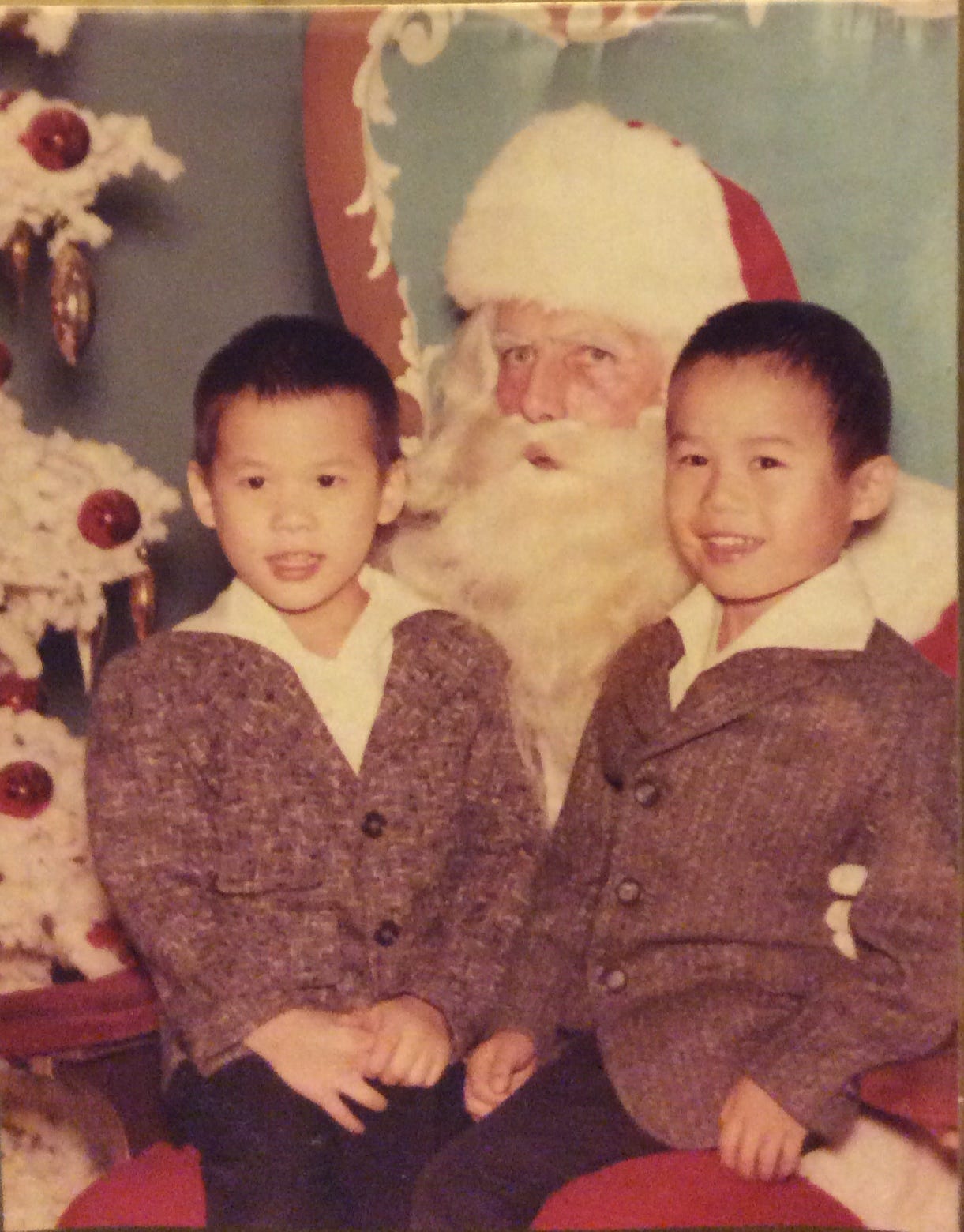BD Wong's Knitting Iced-Coffee Days and Semi-Sleepless Nights
The first Asian actor to win a Tony, best known for "Law and Order," is creating his own projects, has a much younger husband...and doesn't want your stupid scolding comments on his Instagram feed.
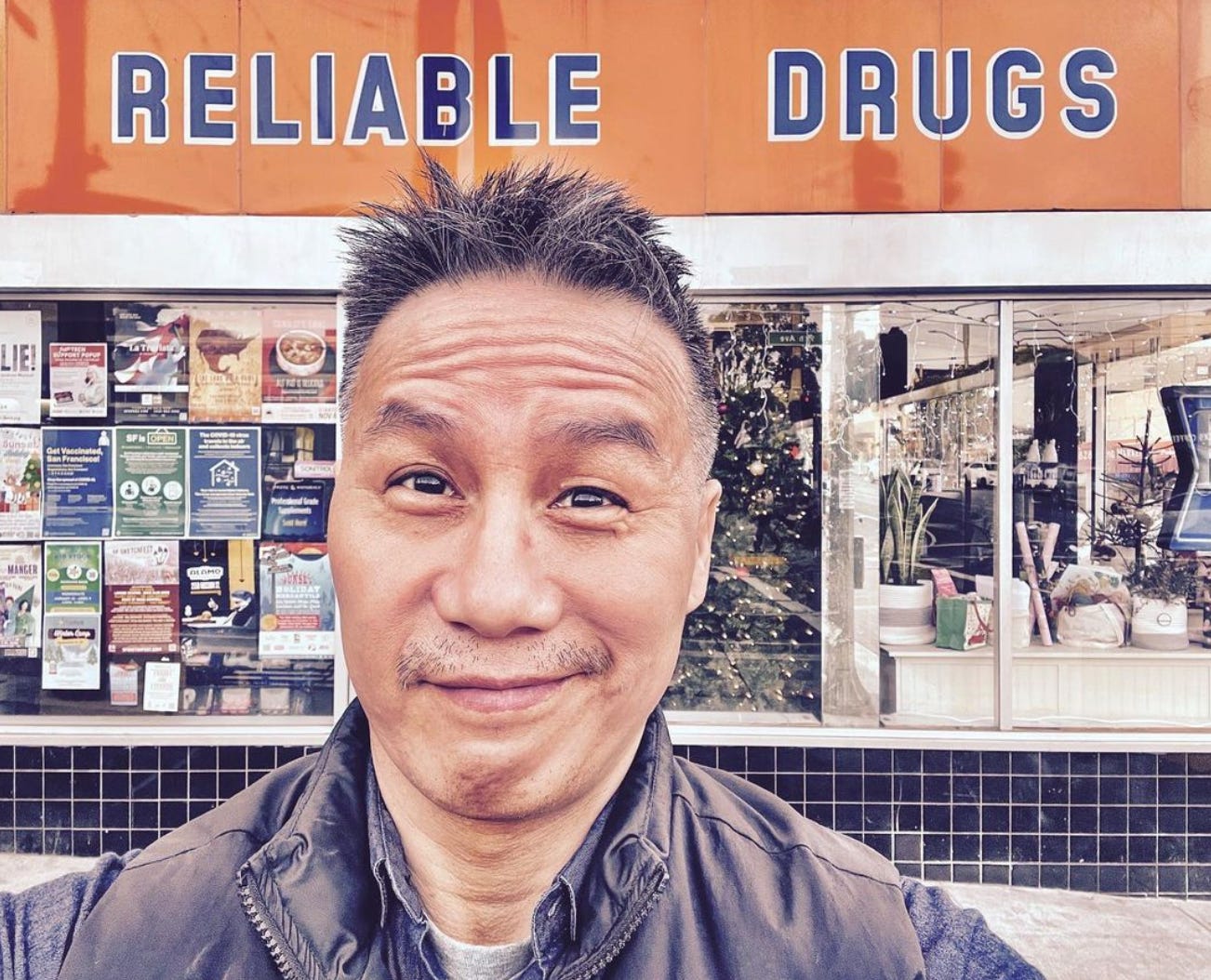
October! It’s the name of U2’s second album and, my dear Caftan readers, it’s very possibly my favorite month because the weather is crisp and dry again, darlings, and for a perpetually clammy, schvitzy person like myself, that is absolutely delicious! I was just briefly in Provincetown for their cute little book festival where I was “in conversation” (I love that pretentious literary term) with my dear friend Mike Albo…
…so we could talk about our new novels—mine is Speech Team and his is Another Dimension of Us—because they are both partially set among queer misfit teens in the 1980s. (Mine then goes into the 2010s…Mike’s into the 2040s!). But I bring this up mainly to say that the weather in Ptown that weekend was so crisp and I was in heaven. I grew up in North Andover, Massachusetts, which in fact (back when it was still part of Andover), back in the fabulously judge-y Puritan days, had more accused witches than any other town in the area, including Salem! One of my favorite things about growing up there was hanging out in the circa-1660 burial ground.
So you can imagine how much I love this time of year—pumpkins and crunchy leaves meet creepy austere Puritanical occultness. I am so there for all of it!
(Oh, actually, one more related thing…Mike and I are thinking of taking this little literary show on the road this late fall/winter to various gay places…so if you think you could rustle up about at least 15 folks who would each buy one hardcover copy of his book and one of mine as admission (right now that would be $40 total on Amazon), let me know at timmurphynycwriter@gmail.com and we’ll see if we can arrange a meet-up. We want to get the F out of NYC this winter!)
Okay…now…I am super-honored to have esteemed actor BD Wong (no dots between the B and the D!) as my October Caftan interview. Frankly, I didn’t think he’d say yes—I thought he’d take one glance at all those porn-star interviews and run. But, reader, I booked him! And on September 5, we talked for three hours! Now, I refer you to BD’s acceptance speech when, at the age of 28, he became the first Asian to win a Tony for acting in 1988 for his role in David Henry Hwang’s pathbreaking play M. Butterfly…
BD, who is 62, was very affable, open and thoughtful. There’s a lot here about, well, lots. Some predictable things, like how he feels Asian representation in TV and film has and has not changed in the many decades he’s very consistently worked—including his 11 years playing FBI psychiatrist George Huang on Law and Order. But a lot else, and I may as well just let the interview speak for itself!
As ever, thank you for your support, Caftan readers. That I’ve been able to keep doing this project and growing the readership and secure interviews with high-profile, accomplished gays like BD is a dream come true for me. If you do the paid subscription, I’ll once again say THANK YOU!, and if you do not, I hope you’ll consider it at some point. If you like Caftan, please post this link to your socials if you’re on it and tell your friends about it. That means the world to me.
Enjoy whatever crispness we will get this fall in this new and sad era of climate change…and I’ll be back very soon. I already have the next few Caftans lined up. There is one that I am so excited about that I am actually driving upstate (Hudson Valley) for next week! I hope it’s a crisp day! Apple-cider donuts, here I come!
xo Tim
Tim: BD! Thank you so much for agreeing to do a Caftan interview. To start: What is a typical day like for you?
BD: I tend to have no such thing as a typical day because my life is eclectic. Having said that, I sleep very poorly. I have terrible insomnia and I end up often going to bed very late and sleeping very late, so I try not to have commitments in the morning. And all that goes out the window if I'm working, so I might go to bed as late as four or five a.m. and get up, like, now. (1pm)
Tim: How long have you experienced insomnia?
BD: Probably a couple of decades. I used to sleep very well and now I don't anymore. I can get to sleep very easily but never stay asleep more than 45 minutes to an hour at a time, then I'm up. The real challenge is that, in order to put myself in a state where I can get back to sleep, I often have to eat something, which is just terrible. I'm a reasonably happy person, very content with my life, where I'm living, who I'm living with—but this is the thing that gnaws at me as something that I really want to change.
Tim: I hear that. Have you tried a sleep clinic?
BD: I've done it. I've actually had surgery on my deviated septum but it didn't help. So, to go back to your initial question, this is why I strongly eschew the whole concept of having a routine. I don't like it. And the one thing that is great for improving your sleep is to have a very regimented bedtime routine—like, you start doing this or that an hour before you go to sleep. I hate that. I don't wanna do that, even though when I can do it, my sleep improves a little bit and I have no doubt that if I continued to do it in a regimented way, I could get more consistent sleep. Although I've given up on the idea that I will go to sleep and not wake up like my husband does.

It's not in the cards for me. My son, Jackson Foo Wong, is 23 years old—

Tim: Wait. What? You have a son?
BD: I coparented him with my ex. We had him through surrogacy. he was born in 2000 and had a very difficult birth. He had an identical twin that didn't survive the birth. He was in the hospital ICU for three months after his birth, then we brought him home. I wrote a book about the experience called Following Foo.
Tim: Are you close today?
BD: Very. He lives in Long Island City (Queens).
Tim: You and your then-partner were rather ahead of the gay-men-becoming-fathers curve, having a child by surrogacy in 2000.
BD: Actually, when we were expecting, lots of people had done this before us and pioneered the whole concept of surrogacy, and we were enjoying the benefits of [their past experience]. But yes, it was not at all as easy as I think it is now. We had to make very specific arrangements to have my name on his birth certificate.
Tim: What has fatherhood been like?
BD: Oh, gosh—that's hours of conversation. Right now, my relationship with him is very nice. I've had my share of rebellious teen from him. You're not always clear whether you have a good relationship with your child. Seeing the forest for the trees day to day is very difficult. When your child goes through a grumpy period, when you think they hate you—is that you, or is it because the human organism goes through all these wonderful, hormonal different kinds of moods? Last year, he graduated from college...the whole experience is extremely enriching. We have all these important relationships in our lives, and if we choose to have children, those relationships are also part of that list, and they shape you as a person. I've been in two long-term relationships with two men, which has really shaped me, so of course it follows that my relationship with my child would shape me, too.
Tim: How did it shape you?
BD: As a couple, my-then partner and I said to each other, "We've been together for ten years—it's time to concentrate on something besides us."
Tim: Would you say, as I've often heard people say, that you could not understand the experience of your own parents until you had your own kid?
BD: Absolutely. I relate to my mother, who is my surviving parent.
Even when we don't have kids, we think about what we put our parents through. And also what they put us through. There's that rough period, especially with gay men, how your coming out affects your relationship to your parents. Of course many people have negative outcomes with that.
Tim: I definitely put my parents through the wringer, well into my adulthood. Did you?
BD: For sure. That's a natural part of the process. You can roll your eyes about straight people, but even the most non-intellectual person who is a parent, your perspective shifts... you have to remember your own childhood when you're a parent and try to let it color your guidance of your kid.
Tim: Almost a bit like going back in time to reconnect with your own teen pain and confusion?
BD: Yes and no. Generations also change in the context of the moment we're living in.
Tim: Like?
BD: When Jackson was in fifth grade, he wanted an iPhone and I said, "Absolutely not." I thought he could use one of my old phones until he showed responsibility. But I was outvoted because my ex remarried, so there were three of us deciding. So tech became intertwined with something fancy and expensive, and, growing up, I I was only going to get something fancy and expensive when I earned it myself.
Tim: Did you feel torn between raising Jackson with the “earn it yourself” ethic you were brought up with, or did you tell yourself to loosen up?
BD: I absolutely felt torn. After his other father and I split up when he was three, he was between two households, so, the very mention of chores, I was like, "In my house, this is what we're going to do." But I never knew what it was like to have to live in two houses. So I greatly respect my son for the way he negotiated that.
Tim: Did you feel like having kids distanced you from a more typical gay life of pleasure-seeking, be that partying or traveling or whatever?



